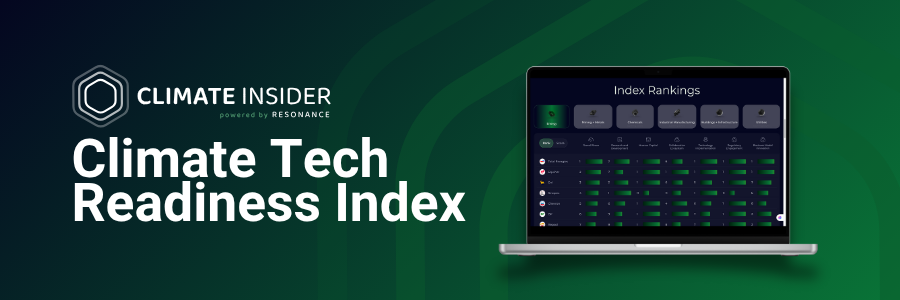Climate Insider Brief:
- Notable expansion in Indonesia’s climate tech sector is driven by economic prospects and cross-industry collaboration, exemplified by entrepreneurs like Willy Halim, who founded a green nickel startup, Baniql, leveraging Indonesia’s vast nickel resources for sustainable energy transition.
- Despite increased private market funding for climate tech startups, economic and political factors such as inflation and geopolitical tensions pose challenges, impacting investor confidence.
- Indonesia, with its vulnerability to climate change and ambitious decarbonization goals, emerges as a key player in the global climate tech landscape. Initiatives like Investible and Mandiri Capital Indonesia’s partnership signify growing funding opportunities.
There has been notable growth in the climate tech industry in Indonesia in recent years. This growth can be attributed to economic opportunities and collaboration across industries and sectors. Willy Halim, founder of Baniql, a green nickel startup, exemplifies this trend. In Halim’s case, he has an educational background in Chemical Engineering, and he had recognized the role of nickel in facilitating the energy transition. His research around nickel inspired him to start a climate tech startup based on utilising Indonesia’s vast nickel resources sustainably.
With regards to climate tech trends in Indonesia, the landscape is reflective of the broader trends in venture capital (VC) investment. There has been a rise in private market funding for climate tech, and particularly climate tech startups, but recent economic and political issues have affected the climate tech sector too and made it vulnerable to fluctuations. Relevant issues in the recent past include inflation, geopolitical tensions and investor risk aversion. Regardless, despite fluctuations in VC funding, the urgency to act for climate action and tangible climate solutions in Indonesia has prompted investor interest in recent years.
In 2022, Southeast Asia received significant funding into climate tech startups, and Indonesia was a very prominent recipient and had received over $1 billion in funding. Indonesia has an important and nuanced position in the global climate tech landscape; the country has high vulnerability to climate change events and in the recent past the government and other sectors have set very ambitious decarbonization goals. Hence, Indonesia is among key players in the global climate tech landscape.

The development in Indonesia’s climate tech sector in recent months can be attributed partly to renewed investor focus on early-stage startups advocating for newer technologies creating tangible climate solutions. There has been very strong interest in critical areas including carbon capture, waste management, and renewable energy storage. Initiatives such as the partnership between Investible and Mandiri Capital Indonesia exemplify growing funding opportunities for early-stage climate tech startups, reflecting growing recognition of the sector’s strategic importance for climate solutions.
Challenges persist for Indonesia’s climate tech startups, including a lack of investor confidence in clean technology, regulatory barriers, and the dominance of fossil fuel-dependent energy infrastructure. Adhi Laksmanaputra, vice president of Xurya Daya Indonesia, highlights the need for public education and policy support to accelerate the adoption of renewable energy solutions and drive market growth.
The success of climate tech startups in Indonesia hinges on multifaceted solutions, including regulatory reforms, market incentives, and public-private partnerships. Arfan Arlanda, founder of Jejakin, emphasises the importance of carbon trading as a transitional mechanism towards a greener economy, contingent upon robust regulatory frameworks and global market standards.
Moving forward, given current trends, Indonesia’s climate tech ecosystem will require sustained and collaborative efforts from different stakeholders, including governments, private investors, foundation and non-profit organisations, and multilateral organisations. As the vulnerability to climate change increases, the urgency to mobilise capital will become increasingly crucial Radical Ventures’ Zachary Lee advocates for a holistic approach to climate finance, emphasising the role of governments and institutions in catalysing innovation and scaling climate solutions beyond traditional VC funding.
In conclusion, Indonesia’s journey towards sustainable development through climate tech innovation is characterised by resilience, adaptability, and collaboration. While navigating funding trends and growth challenges, the country remains poised to emerge as a leading hub for climate innovation, driven by a shared commitment to environmental stewardship and economic prosperity.
To stay informed about the climate industry explore our latest climate tech news.
Featured Image: Credit: Investible








